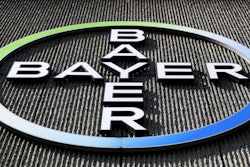Early this month, we reported the building boom in the petrochemicals industry, and the potential for an oncoming bust.
The increase in building projects in the Gulf Coast region has been staggering. The American Chemistry Council estimates that chemical industry announced investments linked to affordable natural gas has reached $179 billion so far.
Most of these projects are ethane cracker plants that produce ethylene, a primary building block in most plastics. And many of the firms shelling out the cash for these new plants are Big Oil companies, including Shell, Exxon Mobil, Chevron and even Total, a French oil, natural gas and solar energy company.
Will these billion-dollar gambles reap big rewards? According to a recent report in The Wall Street Journal, there are three major trends that could derail the push towards plastics.
An Oncoming Glut
As noted in the WSJ, the chemical sector has a tendency to overbuild. Some companies, like Dow, are starting to sense that the industry could be approaching max capacity and scaling back new projects related to polyethylene.
Overcapacity could also be created by recessions around the world. Because demand for plastics is closely tied to GDP, if countries like China and India slip into hard times, it quickly trigger a troublesome glut in the U.S.
Plastics’ Bad Rap
The problem of plastics pollution is in the news almost daily — especially when it comes to ocean pollution. The concern around the environmental impact of plastics — which can take hundreds of years to biodegrade — is only increasing, which is leading to more consumers seeking alternatives, and more companies looking to develop them.
It is typically difficult for bio-based chemical companies to compete with the price of petrochemicals, but the demand for environmentally friendly alternatives is still likely to increase. And as bioplastics become more price competitive, they’ll have the feel-good edge over traditional plastics.
Increasing Regulation
Because of these concerns, governments around the world have been stepping up efforts to curb the use of plastics. Ireland, for example, imposed a tax on plastic bags in 2002 to reduce pollution.
Several places in America have also begun to restrict the use of plastic bags. In 2015, California imposed an outright ban on retailers sending shoppers home with plastic bags.
All told, these factors could weigh on demand for plastics. While plastic remains one of the most commonly used materials in the world, the tide is turning against it, and the future of the plastics business may not be as bright as petrochemical producers hope.






















